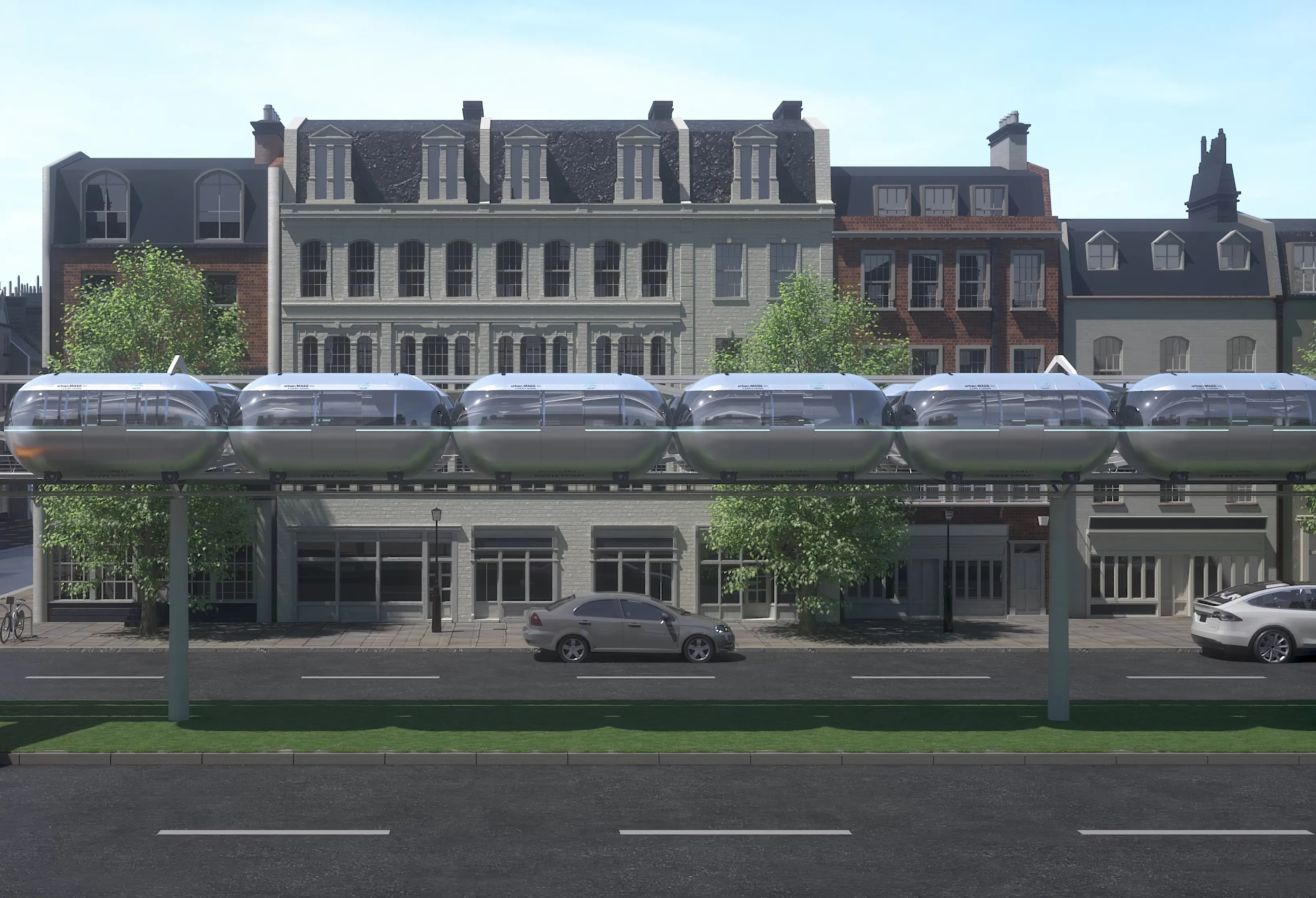
Urban.Mass is to launch autonomous electric pods capable of travelling on road and rail in UK cities and the Ugandan capital Kampala.
The UK-start-up offers Floc Duo Rail transit lines which are expected to deploy hundreds of lightweight pods to collect passengers from anywhere in a city using ground-level tracks or existing road networks.
The pods elevate to the above-ground Duo Rail track via Urban.Mass stations to traverse congested areas of urban centres at high speeds.
Urban.Mass says the pods can “flock” together into connected trains or run individually depending on demand.
This means floc can deliver high frequency peak capacity on dense routes and also provide economically viable services on less dense routes or during off-peak times, the start-up adds.
The elevated Duo Rail track is powered by overhead solar canopies and can run above existing roads and infrastructure.
According to Urban.Mass, this allows infrastructure to “tiptoe” through dense urban areas, minimising the need to demolish buildings or dig expensive tunnel networks, while allowing space for roads, green corridors, cycle paths or pedestrian zones below.
Each prefabricated section of Duo Rail track can be installed in a matter of days using “pop up” construction.
Urban.Mass claims the design means new sections can be quickly added to meet the changing demands of cities as they develop, resulting in a system costing 50% less than traditional light rail.
The first fully operational site is planned to open in 2025 at the National Railway Museum, Locomotion in Shildon, North East England.
Elsewhere in the UK, Urban.Mass has identified a number of cities suitable for deployment, including Bristol, Liverpool, Cambridge, Oxford and Cardiff.
In Kampala, Urban.Mass has received support from the Ugandan Government to deliver a city-scale project capable of carrying up to 16,000 passengers in each direction on proposed routes.
Both the UK and Uganda deployments are part of a global roll out that will see at least 10 cities adopt the technology by 2030.











